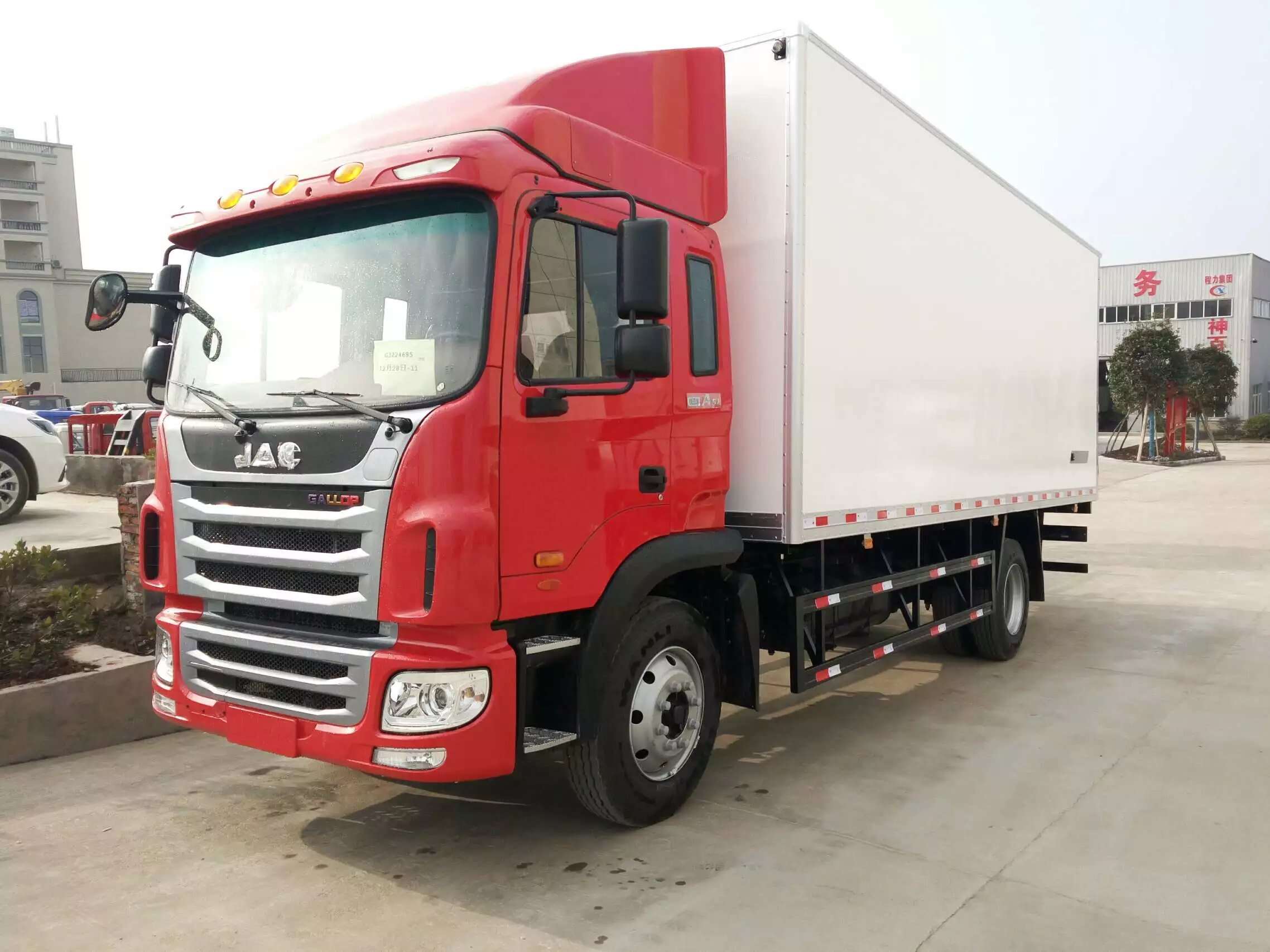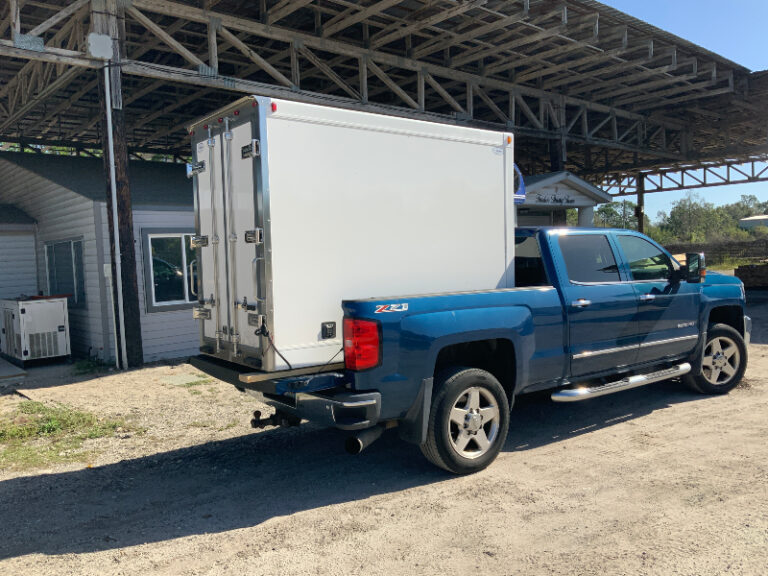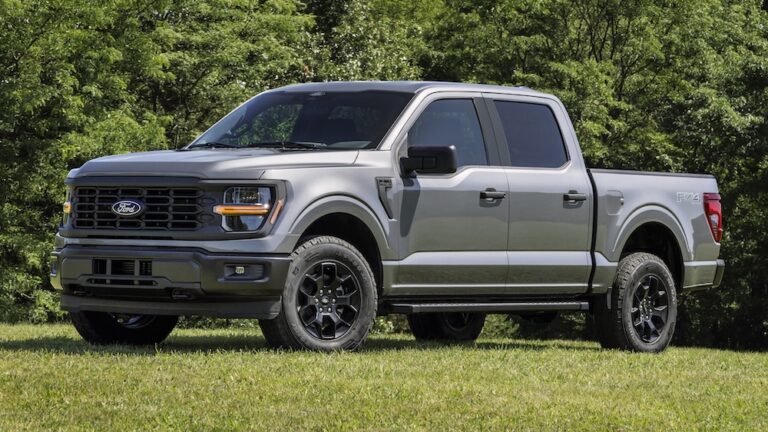Commercial Refrigerated Trucks For Sale: Your Essential Guide to Cold Chain Logistics
Commercial Refrigerated Trucks For Sale: Your Essential Guide to Cold Chain Logistics cars.truckstrend.com
In today’s fast-paced world, where global supply chains dictate the availability of everything from fresh produce to life-saving pharmaceuticals, the integrity of temperature-sensitive goods is paramount. This is where commercial refrigerated trucks, often affectionately known as "reefer trucks," become indispensable. Far more than just vehicles, these specialized units are mobile cold storage solutions, designed to maintain precise temperature conditions, ensuring that perishable products arrive at their destination in perfect condition.
For businesses dealing with food, beverages, floristry, chemicals, or medical supplies, a reliable refrigerated truck isn’t merely an asset; it’s the backbone of their operation. It guarantees product safety, minimizes spoilage, ensures regulatory compliance, and ultimately, protects a company’s reputation and profitability. Whether you’re a burgeoning catering service, a large-scale food distributor, a pharmaceutical company, or a farmer looking to expand your direct-to-consumer reach, understanding the nuances of commercial refrigerated trucks for sale is a critical step towards securing your cold chain. This comprehensive guide will navigate you through the intricate world of these vital vehicles, offering insights into their components, types, purchasing considerations, and much more.
Commercial Refrigerated Trucks For Sale: Your Essential Guide to Cold Chain Logistics
Understanding the "Reefer" Ecosystem: Components of a Refrigerated Truck
A commercial refrigerated truck is a sophisticated piece of equipment, integrating several key components to achieve its primary function: maintaining a controlled internal temperature, regardless of external conditions. Understanding these parts is crucial when considering a purchase.
- The Insulated Body (Box): This is the heart of the temperature control. Unlike standard dry freight boxes, refrigerated truck bodies are meticulously constructed with thick, high-density insulation materials (like polyurethane foam) sandwiched between inner and outer panels (often fiberglass, aluminum, or steel). This insulation minimizes thermal transfer, preventing heat from entering and cold from escaping. Key areas include insulated walls, floor, roof, and especially the doors, which must have robust, airtight seals to prevent air leakage. A durable, often reinforced floor is also essential to withstand heavy loads and constant movement.
- The Refrigeration Unit (Reefer Unit): This is the powerhouse responsible for generating and circulating cold air. It typically consists of:
- Compressor: Compresses the refrigerant gas, increasing its temperature and pressure.
- Condenser: Cools the compressed gas, causing it to condense into a liquid.
- Evaporator: Located inside the cargo area, it absorbs heat from the air as the liquid refrigerant evaporates back into a gas, thus cooling the truck interior.
- Control Panel: Allows operators to set and monitor temperature, humidity, and other environmental factors. Modern units often feature digital displays, data logging capabilities, and even remote monitoring.

- Power Source: Refrigeration units require significant power. This can come from several sources:
- Engine-Driven: Smaller units, often found in vans and light-duty trucks, draw power directly from the vehicle’s engine.
- Self-Contained Diesel (Auxiliary Power Unit – APU): Common in medium to heavy-duty trucks and trailers, these units have their own dedicated diesel engine to power the refrigeration, allowing the unit to run independently of the truck’s engine, even when parked.
- Electric Standby: Many units include an electric plug-in option, allowing the refrigeration to run on grid power when the truck is stationary at a depot or dock, saving fuel and reducing emissions.

- Air Management System: Beyond just cooling, effective refrigeration requires proper air circulation. Ducts, air chutes, and strategically placed vents ensure that cold air is evenly distributed throughout the cargo area, reaching all products and preventing hot spots.

The seamless operation of these components ensures the integrity of your temperature-sensitive cargo, making their condition and maintenance history paramount when evaluating commercial refrigerated trucks for sale.
Why Invest in a Refrigerated Truck? Key Benefits
The decision to invest in a commercial refrigerated truck is often driven by a fundamental need to protect sensitive goods. However, the benefits extend far beyond mere preservation, offering significant advantages for businesses:
- Product Integrity and Safety: This is the primary benefit. Refrigerated trucks maintain a consistent temperature, preventing spoilage, bacterial growth, and chemical degradation. For food, this means fresher produce, safer meats, and dairy products that retain their quality. For pharmaceuticals, it ensures drug efficacy and compliance with strict storage requirements. This directly translates to reduced waste and higher customer satisfaction.
- Regulatory Compliance: Industries dealing with perishables are subject to stringent regulations (e.g., FDA, HACCP in food, specific pharmaceutical guidelines). Refrigerated transport is often a legal necessity to meet these standards, avoiding costly fines, product recalls, and damage to brand reputation. Modern reefer units offer data logging, providing an auditable trail of temperature conditions during transit.
- Expanded Delivery Capabilities and Market Reach: A refrigerated truck opens up new possibilities. Businesses can deliver over longer distances, reach new geographic markets, and transport a wider variety of temperature-sensitive products. This expands revenue streams and allows for greater operational flexibility.
- Reduced Waste and Improved Profitability: By preventing spoilage and maintaining product quality, refrigerated trucks significantly reduce product loss. This directly impacts your bottom line, improving profitability by maximizing the usable lifespan of your inventory. Less waste also contributes to environmental sustainability.
- Enhanced Brand Reputation and Customer Trust: Delivering fresh, safe, and high-quality products consistently builds customer trust and enhances your brand’s reputation. Knowing that their goods are transported under optimal conditions gives customers confidence in your service or product, fostering loyalty and positive word-of-mouth.
Types of Commercial Refrigerated Trucks
Commercial refrigerated trucks come in various sizes and configurations, each suited to different logistical needs and cargo types. Understanding these distinctions is key to making an informed purchase.
-
By Size and Chassis Type:
- Small Refrigerated Vans: These are typically based on commercial vans like the Ford Transit Connect, Ram ProMaster City, Mercedes-Benz Sprinter, or larger Ford Transits. They are ideal for local, last-mile deliveries, catering services, florists, pharmaceutical samples, or small food businesses. They offer maneuverability in urban environments and generally have lower operating costs.
- Medium-Duty Refrigerated Box Trucks: Built on chassis like the Isuzu N-Series, Hino 195, Ford F-Series (F-450 to F-750), or similar, these are the workhorses of regional distribution. They offer significantly more cargo space and payload capacity than vans, making them suitable for food service distributors, grocery chains, and larger catering operations.
- Heavy-Duty Refrigerated Box Trucks: Utilizing larger chassis (e.g., Freightliner M2, Kenworth T270/T370), these trucks are designed for heavier loads and longer regional hauls. They serve large-scale food distribution, wholesale operations, and pharmaceutical logistics requiring substantial volume.
- Refrigerated Trailers (Reefer Trailers): These are semi-trailers pulled by a separate tractor unit. They represent the largest capacity for refrigerated transport, primarily used for long-haul, inter-state, or cross-country shipping of large volumes of perishable goods. Their refrigeration units are almost always self-contained diesel APUs.
-
By Temperature Range and Functionality:
- Chiller Units: Designed to maintain temperatures above freezing, typically from 0°C to 10°C (32°F to 50°F). Ideal for fresh produce, dairy products, baked goods, beverages, and flowers.
- Freezer Units: Capable of maintaining temperatures below freezing, commonly from -18°C to -25°C (0°F to -13°F) or even colder. Essential for frozen foods, ice cream, and certain medical supplies that require deep freezing.
- Multi-Temperature Units: These advanced trucks feature insulated partitions that divide the cargo area into multiple compartments, each with its own independent temperature control. This allows a single truck to transport chilled, frozen, and even ambient goods simultaneously, maximizing efficiency and versatility for diverse product loads.
The choice among these types depends heavily on the specific products you’re transporting, the volume, the typical delivery routes, and your overall budget.
Navigating the Purchase: A Guide to Buying a Commercial Refrigerated Truck
Acquiring a commercial refrigerated truck is a significant investment that requires careful planning and due diligence. Whether you’re buying new or used, following a structured approach will help you make the best decision.
-
Define Your Needs Clearly:
- What will you transport? (e.g., fresh produce, frozen meat, pharmaceuticals, flowers). This dictates the required temperature range (chiller, freezer, multi-temp).
- What volume/weight? (Payload capacity). This determines the truck’s size (van, medium-duty, heavy-duty).
- What are your typical routes? (Local, regional, long-haul). This impacts fuel efficiency needs, refrigeration unit type (engine-driven vs. APU), and overall vehicle durability.
- What’s your budget? (New vs. used, financing options).
- Do you need specific features? (Liftgate, side doors, shelving, temperature monitoring, telematics).
-
Research and Source:
- New Trucks: Explore reputable truck manufacturers (e.g., Ford, Freightliner, Isuzu, Hino) and specialized body builders and refrigeration unit manufacturers (e.g., Thermo King, Carrier Transicold). Dealerships can offer custom builds and warranty options.
- Used Trucks: Look at commercial truck dealerships specializing in used vehicles, online marketplaces (e.g., TruckPaper, Commercial Truck Trader, eBay Motors), and fleet auctions. Used trucks can offer significant cost savings but require more thorough inspection.
-
Conduct a Thorough Inspection (Crucial for Used Trucks):
- Vehicle Chassis: This includes the engine (check for leaks, odd noises, service history), transmission (smooth shifting, no grinding), tires (wear, alignment), brakes, suspension, and overall frame integrity. Get a mechanic to inspect it.
- Refrigeration Unit: This is paramount.
- Age and Hours: Refrigeration units have their own hour meters. High hours indicate heavy use.
- Service History: Demand detailed service records. Look for regular maintenance, refrigerant recharges, and compressor service.
- Performance Test: Run the unit at its lowest setting and check how quickly it pulls down to temperature. Listen for unusual noises.
- Components: Inspect the compressor, condenser coils (cleanliness, damage), evaporator coils (inside the box), hoses, and belts for wear or leaks.
- Temperature Logs: Ask if any temperature data logs are available from previous operations.
- Insulated Body:
- Integrity: Check for dents, cracks, or punctures in the walls, floor, and roof. Any breach compromises insulation.
- Door Seals: Absolutely critical. Inspect all door gaskets for tears, cracks, or compression set. Poor seals lead to significant energy loss.
- Floor: Look for signs of water damage, delamination, or excessive wear. Ensure proper drainage.
-
Review Documentation and History:
- Vehicle Title and Registration: Ensure clear title.
- Maintenance Records: Essential for both the truck chassis and, more importantly, the refrigeration unit. A well-maintained unit will last longer.
- Accident History: A vehicle history report (e.g., Carfax for commercial vehicles) can reveal past accidents.
-
Consider Financing and Insurance:
- Commercial Vehicle Loans: Specialized lenders offer financing for commercial trucks.
- Insurance: You’ll need comprehensive commercial auto insurance, which will likely be more expensive than standard vehicle insurance due to the specialized equipment and cargo.
Key Considerations Before Buying
Beyond the direct purchase process, several ongoing factors will influence the total cost of ownership and operational efficiency of your refrigerated truck.
- Maintenance and Running Costs: Refrigerated trucks have higher operating costs than standard dry freight trucks.
- Fuel Consumption: The refrigeration unit itself consumes fuel (diesel or gasoline), in addition to the truck’s engine. This can be a significant expense.
- Specialized Maintenance: Refrigeration units require regular preventative maintenance, including refrigerant checks, belt replacements, and compressor servicing, often by certified technicians. This is more frequent and specialized than typical vehicle maintenance.
- Parts Availability: Ensure parts for the specific reefer unit and truck model are readily available.
- **Payload Capacity vs. Gross Vehicle Weight Rating (




